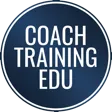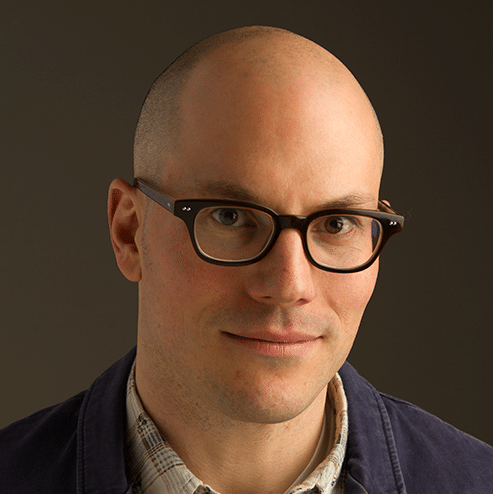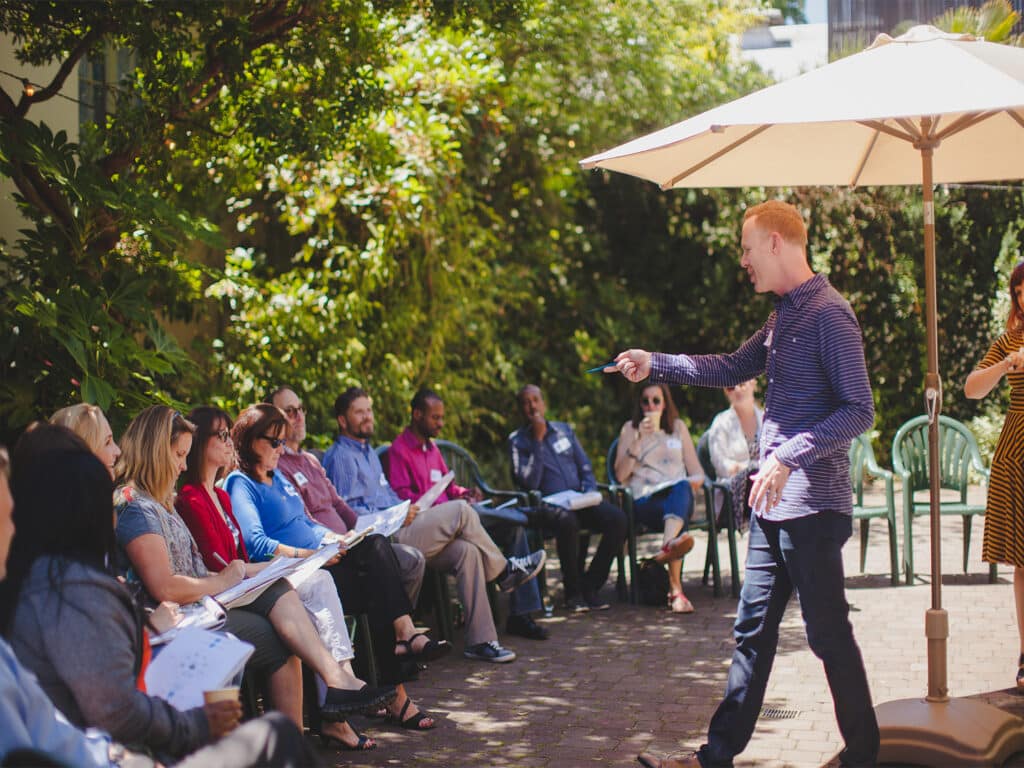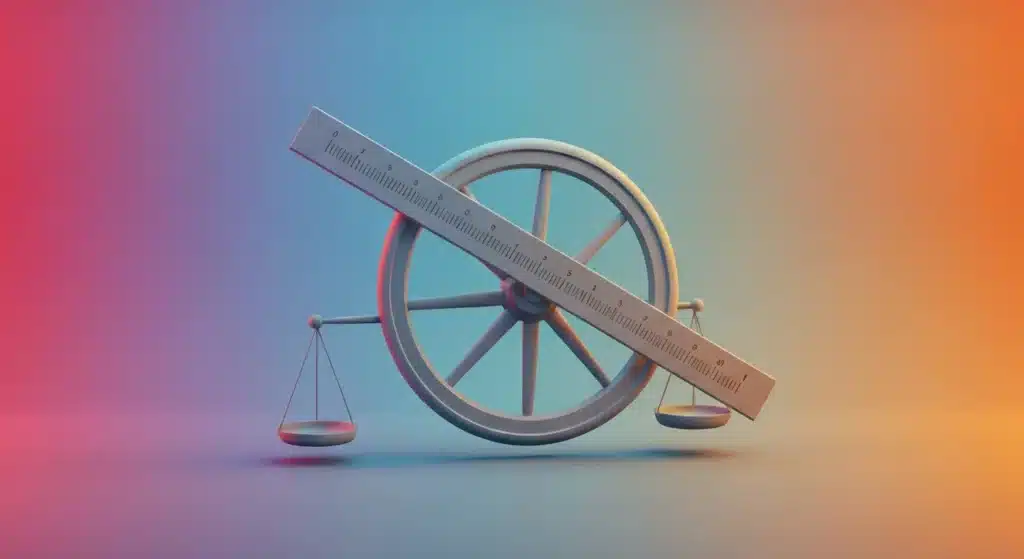Listen to Podcast
Be Curious!
Raj Anderson and guest experts answer your coaching questions each week!
In Coaching to Flourish #076, guest host Britt Fulmer and CTEDU founder John Andrew Williams discuss the differences between a strategy, a tactic, and a plan, and why it matters. The importance of systems when developing goals, how to coach a strategy, and tools for client empowerment are all discussed in this rich episode.

Live Transcript (Edited for clarity)
[Britt Fulmer] Welcome to Coaching the Flourish Live. We’re going to tackle all of your coaching questions every Tuesday, right here on Facebook Live. My name’s Britt and I’m your guest host because Raj is out today. I am joined by John Andrew Williams, president and founder of Coach Training EDU.
Nearly everyone has a big goal that they want to achieve. Something that would change their life for the better, take them to a new level of personal development, or simply just add to their life’s goals. Like writing a novel, starting a business, getting a PhD. But tackling big goals can feel really daunting, which is why coaching is designed to help clients break down their goals into more manageable pieces. So today I thought we could explore the benefits of big picture goal setting, why it’s important to break these goals down into something more manageable, and how doing something as simple as putting your phone in the bathroom at night can help you write a novel.
So are we ready to dig into the topic?
[John Andrew Williams] Let’s do it. Thank you. That was excellent.
[Britt Fulmer] Thanks. I came prepared today.
This is funny cause this actually comes from a class I was teaching recently, and I was telling a story about a client who was struggling with her morning routine. So we ended up diving into the world of systems, where we discovered things that were working for her, things that weren’t working for her. And she decided to make a few small changes, such as using a phone as an alarm and putting it in her bathroom at night, which would force her to get out of bed in the morning. And then she also added the challenge of putting some math problems on her phone, so she had to do some math problems to turn off the alarm, really to get her brain going.
So I shared this example to highlight the importance of systems, and how setting yourself up for success the day before or hours before can really have some strong benefits. And one of the coaches in my class said that while they understood my example, they really found it difficult to relate to their clients, because in this particular coach’s words, their clients had ‘bigger goals’ than just waking up on time in the morning.
And it got me thinking about how overlooked the small things are when it comes to achieving big goals. Because really my client who had come to me was trying to write a novel, and one of the pieces of that was building routine for writing regularly. So I thought we’d start with your thoughts on the difference between big overarching goals and setting those up, and then also how to set up some smaller goals for small wins along the way.
[John Andrew Williams] Well thanks Britt. That’s fun. Yeah, let’s do it. So I like thinking, when there’s a project thinking like this, in terms of chess. It’s just a lovely metaphor. Let’s say there’s a big goal and the goal is to win the game. It’s helpful to break it down into two different aspects – one is strategy, the other’s tactics. And when there’s a big goal, something really important to accomplish, I think there’s a lot of confusion around, what is a strategy, and what is a tactic, and what is a plan? What do I do next?
Essentially we are a one machine problem. We are one machine and we can do all of these tasks, but then how do you prioritize which task to do and when, and what impact does that task have on another task? And so here we are, this basically one machine, computer, faced with a sea of choices.
And then on top of that you have to also get, so what’s the difference between a strategy and a tactic and a plan? And then we have to figure out what’s happening in the external world that’s also moving at the same time that I’m moving. These are big questions. And getting the geography in is a really great first step. So that’s where I’d start.
[Britt Fulmer] Okay. I’m excited, cause you’re introducing all these extra things too, that a lot of people don’t think about. So we’re talking about big goals, small goals, but then strategies, tactics, planning for that. And it blends nicely with hope theory a little bit, and how we plan for things. So, yeah, let’s dive in. How would you define the differences between these things that you’re introducing?
[John Andrew Williams] So strategy is the thesis you’re using to compete against a force that you cannot control. So, a strategy is something that involves an opponent. And sometimes the opponent doesn’t need to be a person, it could also be an idea or a necessity. Let’s say a financial opponent, like you need to make a certain number each month, right? Let’s say you’re entrepreneuring or freelancing, so making that number can be the opponent. Okay cool, so what’s the strategy? Is it, you’re going to get a full-time job and then part-time freelance, or you’re going to try to freelance and then supplement with a part-time job? How are you interacting with an opposing force, and arraying your resources based on a coherent idea? That’s a strategy.
And a lot of people, when they start going into entrepreneurship, they’re thinking the planning route, which is more of, how can I spend the money, or how can I spend my resources to make a website to do the marketing, to do the sales. It’s more around time management. And that’s what planning is. It’s, how are you spending your resources?
And separating those two things out. So having a coherent strategy delineated also enables you to plan better, which enables you to develop tactics. Which, the person who puts the phone in the other room and has to do math problems, that’s a tactic. That’s a habit. That’s a cool move on the board that you can employ, almost like shorthand, to achieve the larger strategic vision. Or to plan better. So having certain planning systems could be tactics that help you achieve the strategy.
[Britt Fulmer] I can see how there’s a lot of complexity, yet simplicity to it as well.
[John Andrew Williams] Totally. So just to make it really clear, how this works in the real world. So, I love plants. I love watering plants. I got this garden, and we recently put in grapes, and we have the perfect hillside for it. And I had to research grapes, put in the, you know, grapes, the irrigation, the poles, the whole thing, while still doing all the other things.
So I have a strategy. And my strategy, I call it bumblebee. And the idea is, you go from place in your yard to place in your yard, and whatever you see needs to be watered or taken care of or built so that the plants don’t die, that’s the next place, that’s the next flower. But you, you have to be a bumblebee. You can’t just stay there and let everything else neglect. So you have to do a round, and allow yourself to do that round, and that little sneaky thing says, Hey, maybe you should check on that three year old over there. It’s been a little too long, they’re a little too quiet.
So it’s okay to bumblebee. The strategy isn’t like, I’m not moving this thing to completion. I’m just moving it one step forward. And so the coherent idea is, if I go from garden, from place to place as a bumblebee, can I cover all the bases? And you just allow yourself, so there’s no plan. I have a list, you know, I’ll go through my list and cross stuff off. You know what I mean? It’s like, the strategy’s one step, and not totally focus in this area, get it completely done, and go someplace else, get that completely done. My life can’t work like that.
We’ll call that the opposite, maybe focused strategy. Once you have your strategy, then you can start to form your tactics, and really execute a plan.
[Britt Fulmer] Okay. So there’s different types of strategies, is what you’re saying.
[John Andrew Williams] Mm-hmm. Mm-hmm.
[Britt Fulmer] Okay. So when you’re working with a client, let’s say, especially early on in a process I notice sometimes with my clients, they start to hyper fixate on the daunting, looming nature of the bigger goal. What’s the best way, would you say, using some of these strategies, tactics, plans, to help redirect them away from, oh my gosh, this is so scary, how am I ever gonna do all of the things I need to do to get to this big goal? And have them focus on something that’s more achievable in the moment.
[John Andrew Williams] They have to define their strategy. Creating an actual name for the strategy that you’re employing to achieve that goal takes your attention off of the dream ‘what if’, this is out there in Neverland. It’s, no, no. This strategy, can it work? Does this strategy have a logic to it? Does it feel like it works?
And if you have a strategy that feels like it works, now we’re back in Hope theory. Because you then go into, yeah, I think my actions are going to be useful. And if that’s not the case, some people have an internal monologue, ‘my actions will not be useful.’ You can feel it. You can feel viscerally the difference between those two different internal statements.
Having a coherent strategy allows you to say, yeah, this is where I’m going and this is why, and this is how. But it’s against an opponent. So it’s a thesis. It’s a thesis, so you’re continually changing it, you’re testing it. And so it gets you out of this mode of, oh my goodness, that goal is so huge, so big.
If you take on the goal of, I want to transform education, that feels super heavy. What is that even gonna look like? But then when you start thinking, okay, what would my strategy really be to have life coaching concepts infiltrate education? To be almost the center of education. What would really like that path look like? And then if the strategy is okay, I need to demonstrate it myself, show others how to do it, show that this is financially viable, show that it does have a huge positive impact on students. And then a school’s gonna do it, and then a state’s gonna do it, and then a nation is going to do it, and then it will be the future of education. That’s the strategy. And so the huge goal then becomes a series of strategic milestones.
[Britt Fulmer] Right. That makes a lot of sense. What you got me thinking about is bringing in a little bit of growth mindset and fixed mindset, in the sense that if everyone had the mindset of the coach that was in class say – and I don’t think that this particular coach’s mindset was this at all. It just got me thinking, if other people’s mindsets were, I have this big goal, I don’t have time to be spending on experimenting with my morning routine. I need to write, I need to get to the novel, so I don’t have time to be fixing this and I don’t have time to be fixing this. They miss that those milestones are the things, are the ladder rungs that get you to the top. Without them, you just kind of got the two poles, but you’re gonna be shimming and sliding all over the place.
[John Andrew Williams] Right. So let’s do the exercise. What would you call that strategy? The strategy is, I don’t have time for anything else. What would the name, the positive intent name of that strategy be?
[Britt Fulmer] I would, if it were me, I would just call it like, ‘eyes on the prize.’
[John Andrew Williams] Right. Like nothing else matters. So let’s call that the strategy. What does that strategy lead to? What’s the logical conclusion of that strategy?
[Britt Fulmer] I guess that it would depend, right? If I just write, write, write, write, write, that’s great. But if I don’t have any routine, if I don’t have a strategy around my writing, if I don’t have structure around that writing, is the writing good? How am I getting feedback? Am I taking care of myself? So, it ignores everything, it ignores the support.
[John Andrew Williams] Right. This is exactly the next step in strategy planning, looking at strategy, pegging it down so you can get to a plan. If this strategy is true, then what are the other ideas that also have to be true? And that’s where things get interesting.
[Britt Fulmer] Yeah. I love that cause you’re right. In that sense, if all I have to do is write, write, write, then I would have to have an environment set up that enables me to do that. I’d have to have a routine set up that enables me to do that. So if writing is the only thing that matters, if that’s true, I would have to do a lot of things before that to set myself up for the success of getting to the top.
[John Andrew Williams] That’s the idea. And so it can even be that, let’s say the person wants to write, write, write. That’s the strategy, is just write. What happens if you do that for three days? Do a writing sprint for the purpose of trying to see how far you can get in three days, for the purpose of seeing what else breaks around your life. You know, oh wow. I need a system for my clothes. Cause if I just write, that’s gonna get outta control.
[Britt Fulmer] Right, right. That’s true. There’s a lot of things that people wouldn’t neglect if they didn’t have everything else built around it.
[John Andrew Williams] And then it can be like, what if? What if you developed that iron discipline of just writing for eight hours a day? What is that like? That’s where you can start to get into testing strategies out. And if there’s a way that you can test a strategy, that’s the good stuff. And then you develop tactics that support strategies.
I have guidelines, like when I do the bumblebee around the house. It’s so wild. I feel like I could almost make a flow chart of my lawn care decision making process. I might go that direction. It’ll be interesting to see, like as an older person, how systemized this stuff gets. Because I’ve been deep in the irrigation lately. Thinking to myself, my goal is to set everything up on automatic, the whole thing. To minimize my actual human input into this anymore and see what happens. I am 80% of the way there.
Anyway, as a metaphor, right? Can you upstream, can you set up the irrigation? Can you put the work in, the work now that will have a continual drip benefit in the future? So your job is to go around and just to check on the systems and make sure these systems work.
[Britt Fulmer] Right. And so going back to that original example from the beginning of someone putting their phone in their bathroom. That’s just one tiny step, you know? That’s one of the places that the Bumblebee goes, in the grand scheme of the rest of their day that they need to set up for success.
What you just said kind of got me thinking, one of the biggest challenges that I feel like I see with my clients, and we talk about in classes, is that because no two clients are alike, even if two clients have the same goal, the way they each get there might look different. So for example, in my world, one client might break down their goal of writing a novel into, I want to write a chapter every week for 24 weeks, until they have all 24 chapters and they complete their novel. Whereas another client might want to break the same goal in terms of acts: act one, act two, act three, each act consisting of eight chapters. And they want to do that in three weeks, one act a week, right? So that’s a much larger milestone than the other person.
So my question here is, as a coach, how can we help our clients determine whether or not the size of these strategies, tactics, plans are suitable? And then set them up for the success piece, the small wins they would need? Is that part of the experimentation process, or is there other strategies that as coaches, we can be implementing to help our clients see success faster? Maybe faster is the wrong word, just see success more efficiently.
[John Andrew Williams] It’s an interesting question. My mind goes to three different directions.
The first is, I don’t know if that’s the right question to ask. Is the goal too big, or is this milestone too big, is this goal too big to accomplish? Big goal size, really big goal size, in the hands of a well trained coach, can be an amazing learning experience. And where a coach would go is to use the big goal as a launching pad for questions about, What do you feel like is your life’s work? When you’re doing something, when do you know that you were born to do this? What does that look like for you? When you’re looking back on your legacy, what are the three biggest important aspects of that legacy?
You can go into these questions when someone has a really big goal. What does fame and money mean to you, what does it mean to your goal? When you wake up in the morning, what’s the first honest emotion that comes to mind and where does it come from? You can go this intimate, this deep, with a really big goal, and start to unpack stuff that people might not even in their whole entire lives have a chance to even put into words and verbalize, let alone have someone listen to that and respond to it.
So in the hands of an experienced coach, big goals are like, bring ’em on, the bigger the better. You want to go not just to Mars, but to one of the moons of Io, you wanna check out Jupiter, you know? Let’s try to get to Jupiter, with a human. You get there and it just brings up so much stuff that – excellent, brilliant.
Thought two is, when you’re exploring a strategy like this, a large mission, you can start to break it down into strategies. So what would the strategy be? You still then put yourself on that empowerment path. Because what strategies do is – this is how to do it, for sure, this is how I’m gonna try it out. But it’s a thesis, it’s an experiment. It’s a, ‘let’s try this.’
And then the third thing is – and this is the thing that I’ve been playing with a lot recently too – I think there is a body of work that is really useful to know. There is a useful knowledge basis out there, cause the other two points go so far in the empowerment basis that a coach would almost completely ignore whatever knowledge they had.
I do think there is a place for a knowledge basis in coaching and I’ve been really wrestling with where that fits. I think where it fits is empowering your client to find it. However, you do as a coach have a pretty serious knowledge basis on how, this is how this thing just works. How can you share that in coaching sessions in a way that still goes back to empowerment? We talk about this, we have a lot of ideas on this, but you know, on a more systematic level, what’s that balance between empowerment and knowledge basis?
[Britt Fulmer] I think what you’re saying brings up for me too, one of the bigger questions that I get asked, especially in my academic classes, is we have students who come to us and they have these giant things that they wanna accomplish. And I’m not saying that they can’t accomplish them, it’s just that in the timeframe they want, or given all of their other things that they have going on, they’re really putting themselves in a situation where it would be a really big challenge.
And the question comes up is, I wanna empower my students or my clients in this case, but I also wanna set them up for success. If I know from a knowledge basis that what they’re trying to accomplish is maybe not impossible, but highly, highly unlikely – again, not ever, but just in the timeframe or given their circumstances – how do I make sure that I’m setting them up for success, but still empowering them and not basically coming out and being like, that’s not possible. So what’s the balance point there?
[John Andrew Williams] I’ve been playing with that idea too. I think it’s also designing what kind of relationship you want to have with success and failure. Let’s say someone does experience success quite early. They have a strategy, they employ a strategy, they get lucky. And then they achieve success and they think, okay, cool. This is how this is going to operate. And then they move further down the line, but they never really learn to develop a work ethic around testing stuff out.
Or you know, I sometimes check in on the Bumblebee method and say, is there anything that’s not working? There’s a great feedback loop, you know – these plants are not making it, so you gotta adjust, right?
I mean, you start to get these things where you realize you want to test these strategies. And so if you get early success and don’t learn to test strategies, later on when the stakes get higher, you might not have enough of a knowledge base or work ethic, or you just got lucky that first time.
So it’s helpful to have a mindful relationship to success and failure, and actually to seek out both success and failure. You have to actively seek out failure in order to become long term successful. I know in the business world, some people say, oh, failure’s overrated, failure’s underrated. We each have our own relationship to it. Working with a coach can help you define and find your most empowering one. The one for me is, I have to actively seek it out. I have to breathe into it. Especially the hard failures where it feels ouch.
So I have this 4D cycle that I’ve been playing with – and I know we gotta stop here. But the 4D cycle is, first is disappointment. You feel the disappointment. Second is doom. You allow yourself to go a little further and just feel that doom and gloom.
Third, and this is where I feel like is the most important step, is the shift between doom and determination. And you feel it, each one of us has that bridge between feeling the doom and gloom, and then you know what? I got this. There’s that inner – you gotta find that, love that part, nurture that part.
And then the last part, and this is the second most important step, is going from determination to actually doing something. You gotta do something. It’s not just enough to think your way – it’s an action step. So I called the 4D cycle. Disappointment, doom, determination, do.
[Britt Fulmer] I think that’s a great thing. It reminds me of a quote I heard recently. Maybe we can end on this. I can’t remember exactly, but it says something to the effect of, when you take risks, you win either way. If you are successful with the risk, you become happier, be you become more confident, your self-esteem grows. If you fail at the risk, you gain wisdom, you gain knowledge, you gain experience. And so there really is no losing in taking risks or looking to achieve these goals.
And I think that blends nicely with that 4D cycle of, I took a risk and it didn’t work out, but now I’m determined to keep going and I’m gonna do something about it to continue that upward spiral. That’s a really cool way to look at it.
[John Andrew Williams] You can’t underestimate doom either. You gotta allow yourself to sit in the doom, that’s part of it. Because it’s a tactic, right? How do you get into the doom effectively, how do you get out of doom effectively? It’s a tactic, what’s your tool to get from doom to determination? Usually it involves some sort of empathetic motivation.
[Britt Fulmer] I love this. Let’s add this to the agenda for next time.
[John Andrew Williams] We have fun. I know we gotta stop.
[Britt Fulmer] Thank you all for coming today, this was so fun. Check back next week, we’ll be doing it again. I think Raj will be back next week. So we will see you all next week. Thanks for being here.
[John Andrew Williams] Thanks everyone.
Join us each Tuesday Live on Facebook at 11:30 AM PST | 2:30 PM EST.
The Coaching to Flourish podcast is currently available on Spotify, Apple, Amazon, Overcast, Pocket Casts, Radio Public and Anchor.




